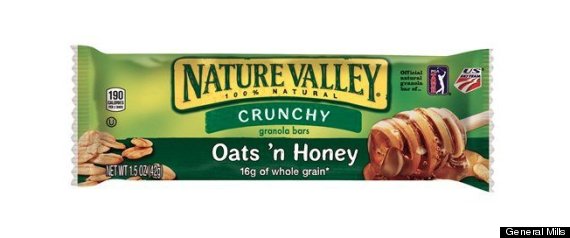In 2012, two California mothers got fed up with the use of the phrase “100% Natural” on the General Mills Nature Valley granola bars. They called the marketing deceptive and point out that the products contain dyes and highly processed ingredients. This case is still pending, and it will be interesting to see how it shakes out. More interesting, however, is what General Mills got up to behind the scenes in the intervening months. Here’s the timeline as reported by the American Association for Justice:
1. General Mills decided to lie and break the law. Deceptive advertising, etc.
2. On March 26, 2014 a judge denied a motion to dismiss the case about the deceptive marketing in food labeling. Apparently the claims of these mothers have a bit of merit to them and we’ll probably see a big settlement in the near future since General Mills certainly won’t want to have their ingredients list paraded around a public courtroom.
“It’s essentially trying to protect the company from all accountability, even when it lies, or say, an employee deliberately adds broken glass to a product.”
3. One week later, April 2, 2014, General Mills quietly updated their legal terms on their website to include a sweeping forced arbitration clause. This forced arbitration clause eliminated consumers’ rights to hold General Mills accountable in court, cut off consumers’ rights under state laws, designated the arbitrator to decide the validity of the forced arbitration clause – not a judge – and kept the proceedings of the arbitration secret. Forced arbitration is an abusive practice where the corporations force customers into a rigged arbitration where the corporations choose the arbitrator and the arbitrator’s decision is final. You can’t appeal. You can’t go to court.
4. On April 17, 2014, the New York Times broke the story about the altered terms of service. The General Mills website language had been changed to say that in exchange for “joining” or “liking” or downloading a coupon, or entering a sweepstakes or interacting with the company at all, the website user was agreeing to abandon their rights to pursue the company through legal channels. It then added additional language that said that simply purchasing one of their products was an agreement to these terms.
About this change, Julia Duncan, director of federal programs and an arbitration expert at the American Association for Justice said, “It’s essentially trying to protect the company from all accountability, even when it lies, or say, an employee deliberately adds broken glass to a product.”
5. After extensive consumer public pressure, on April 19, 2014, General Mills dropped its forced arbitration clause.
What does this mean?
What’s important to get from all this is the idea that corporations are putting more and more emphasis behind these forced arbitration clauses. You’ll likely agree to many of them without ever really knowing it. Here are just some companies that use forced arbitration clauses in the fine print of their service agreements:
- >> Amazon.com
- >> American express
- >> AT&T
- >> Charles Schwab Bank
- >> Ebay
- >> Netflix
- >> Paypal
- >> Sallie Mae
- >> Starbucks
A forced arbitration clause seeks to have you surrender your rights. If a corporation like General Mills can try to stuff such an incredibly restrictive clause into the language of its terms of service on their website, how long will it be before every corporation follows suit? Imagine a world where companies with defective and dangerous products are protected from facing justice in the court system simply because you entered a competition on their facebook page. What General Mills tried to do is just another example of how corporate mentality and greed leads to the suspension of justice.













